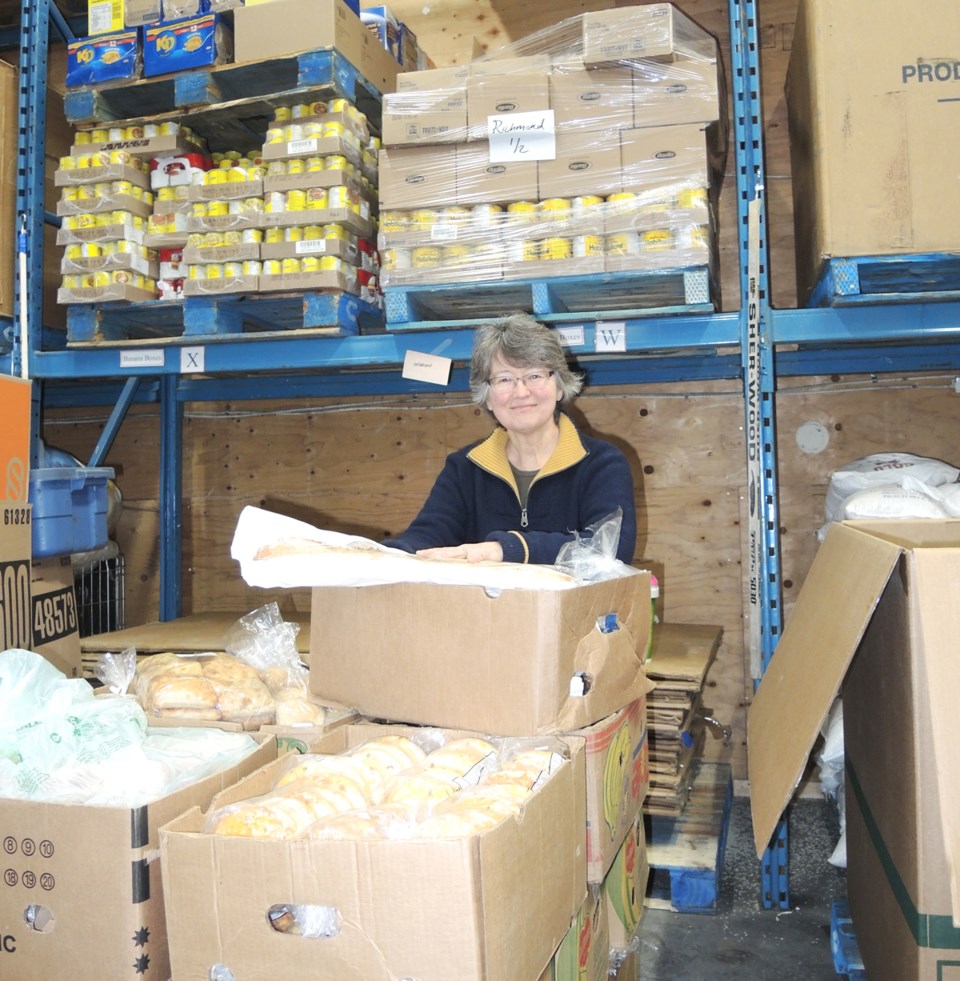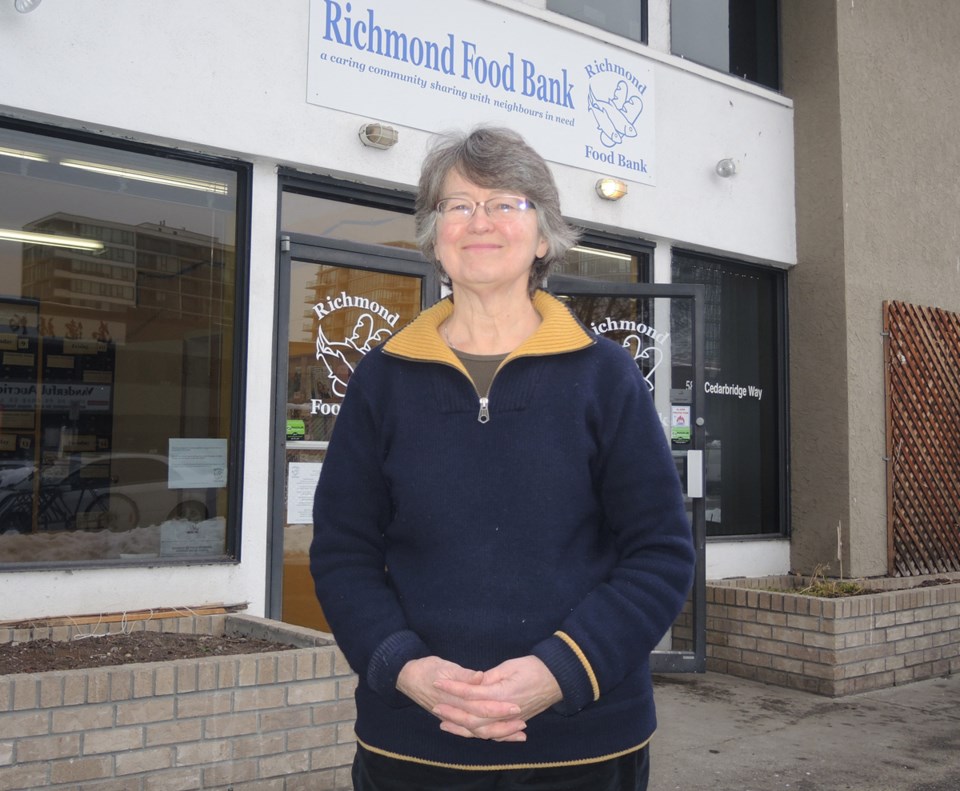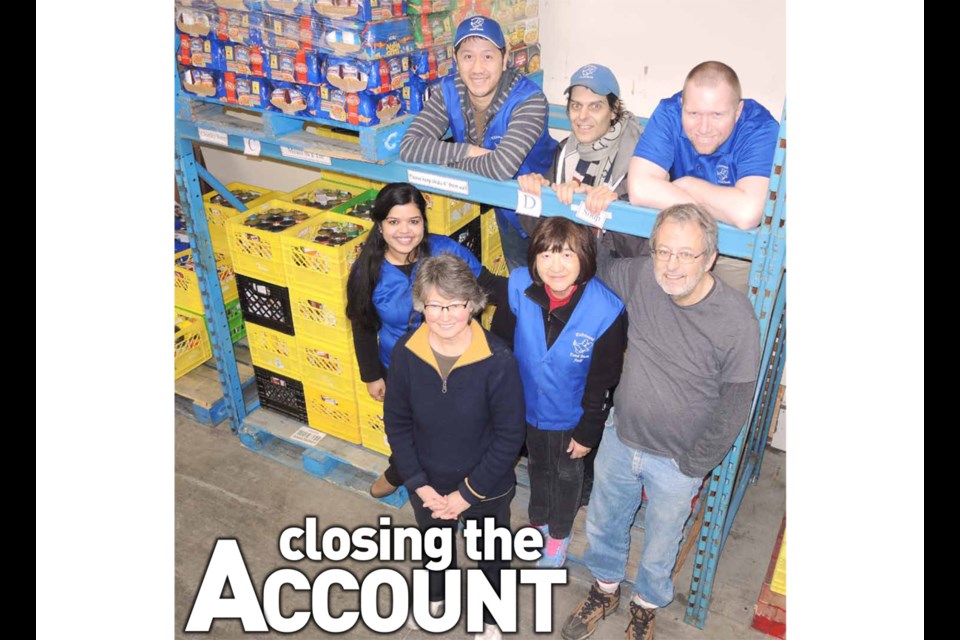It’s the little things that Margaret Hewlett will remember the most.
Such as, when people contact her — many years after the Richmond Food Bank helped in their hour of need — to simply say “thanks,” with stories of them starting businesses or their children going to university.
Or looking out in amazement from her food bank executive director’s office to witness three Russian babushkas (grandmothers) grabbing shovels to remove the snow from the charity’s parking lot.
Whether it be refugees from Iran, Central America or Asia, or a local family down on their luck during the 2008 recession, Hewlett has had a lot to chew on (pun intended) in her 27 years working at the food bank.
It will all come to end, for her at least, at the end of February, when she packs her last bag of essential food items and retires to look after her husband and elderly mother.
“I’m feeling like I’ve made the right decision; the place is in good shape, with good staff,” said Hewlett, who was the food bank’s first ever employee back in 1989, and who’ll turn 65 this year.

Modest Hewlett thinks her retirement will be “good for the organization,” with some “fresh perspectives” coming in from her replacement, Hajira Hussain, who’s currently the 34-year-old charity’s operations manager.
Hewlett, who was officially named executive director in 2007 — but was reportedly fulfilling those roles for many years prior — said she decided to call it a day last spring, but kept it under wraps until last fall.
“I told family and friends, initially; then I told the staff and the board in November, to give them some time to get organized.”
Hewlett said her motivation to retire was driven mainly by the need to care for her sick husband and looking after her 91-year-old mother, who also lives with her.
“I had no plans to retire, but anyone who has a family member to look after knows how much it takes,” she said.

Hewlett was a homemaker back in 1989, when a neighbour, who was running the food bank, asked if she’d like a job.
“When I started, (the food bank) was on school board property, where the new Thompson Community Centre is,” she recalled.
“It was a 1,600-square-foot, dilapidated, abandoned building; it was a real mess.
“There were 45 volunteers back then, now there are more than 200.”
It’s not just the volume of volunteers that has changed dramatically during Hewlett’s tenure; when she started out, the bank served between 120 and 140 families every week.
That demand has multiplied by more than 400 per cent to between 500 and 600 families weekly, pushing the food bank over the decades to initiate and expand programs beyond putting meals on people’s tables.
“Back then, we had one dispensary open once a week. Now we have dispensaries all over the city that are open 51 weeks of the year,” said Hewlett from the food bank’s home of 10 years on Cedarbridge Way.
“And we used to be focused solely on setting up the distribution of bags of donated food. Now, we’re much more into the purchasing of food and a lot of effort went into getting our hands on fresh milk.
“We’re now involved in healthy eating education and programs. We do more and more work with the schools; it took a lot of time and effort over the years to get the schools to recognize the worth of getting involved.”
The food bank, added Hewlett, also offers nutrition education, with a nutritionist coming in to prepare “tasty” food for the adults with the same ingredients they take away, all while their kids spend time in the bank’s play area.
And in terms of the cultural origin of the people needing the food bank over those 27 years, Hewlett said it was, and still is, indicative of what’s happening around the world at that time. “At first, it seemed there was a lot of people from Iran and then it seemed to be Central America,” she said.
“We are now seeing lots of people from the Middle East again and from Asia. Our supporters and volunteers are also a reflection of the city’s diverse cultures.”
Above all, Hewlett said she’s probably most proud of her team; people that she picked for their many redeeming qualities.
“The biggest challenge has been hiring the right people. I think, through luck and discernment, I’ve managed to get some really good staff here,” she said.
“We have wonderful volunteers, also, but I can’t take credit for that.”



